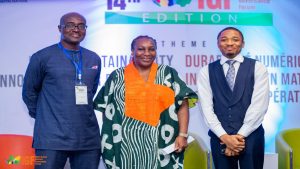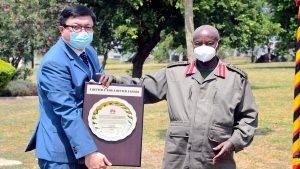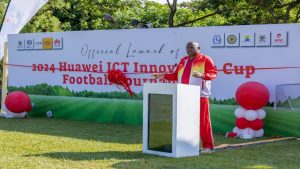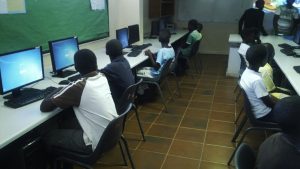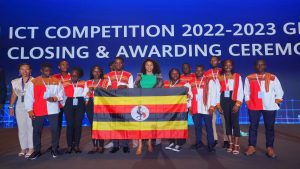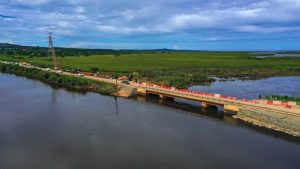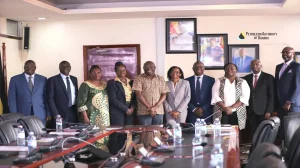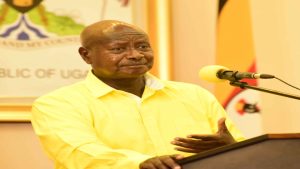Share
Researchers across Africa need to report on the effects of the Science Granting Councils Initiative in sub-Saharan Africa (SGCI), according to Dr. Dorothy Ngila, head of strategic partnerships at the National Research Foundation of South Africa.
Uganda and other African nations have been advised to establish their own research agendas for science, technology, and innovation.
According to experts, researchers from outside of Africa conduct a large portion of the study conducted in Africa. Foreign organizations who may not have an interest in the local situation are also funding the research.
The convening of research councils in Africa can contribute to an increase in research, its quality, and productivity, according to Dr. Kjerts Thorkildsen, senior advisor for higher education and research at the Norwegian Agency for Development Cooperation (NORAD).
At the beginning of the one-week regional workshop for science councils and funds from Sub-Saharan Africa at Speke Resort Munyonyo on Monday, June 19, Thorkildsen made the remarks.
The 2023 Regional Meeting, with the topic The Role of Science Granting Councils in Africa’s Development, will be held from June 19–23 at the Uganda National Council for Science and Technology (UNCST) and the Science Granting Councils Initiative in sub-Saharan Africa (SGCI).
Africa sub-Saharan fares poorly globally in terms of scientific research. Researchers based in Europe and America, not Africa, produce the majority of the research on Africa. They are not published in Africa; they are,” Thorkildsen claimed.
She outlined how the funding scheme determines how research is conducted in Africa.
“The priorities set by these contributors for external funding are external priorities. Africans are not in control of research because donor and foreign finance methods are prevalent across the continent, according to Thorkildsen.
As a result, some of the research’s findings are not applicable to Africa. Thorkildsen stressed the importance of research councils in advancing pertinent research in Africa. She mentioned that 15 African research councils had financed nine initiatives that were in line with African interests and backed by NORAD.
“Promoting African agenda shaping is one of our (NORAD’s) top priorities. Africa needs to fund its research and invest more in agenda-setting, according to Thorkildse.
The discussion, according to Martin Ongol, acting executive secretary of the Uganda National Council of Science and Technology, highlights the necessity of advancing research and evidence-based policy-making that promotes economic and social development.
According to Ongol, research has allowed Uganda to produce cocoa-based goods like lotions and chocolates. He claimed that research may be used to improve the value of products like coffee and others.
“We are all working together to develop Africa via innovation, technology, and science. May this gathering serve as a springboard for creative thinking, teamwork, and revolutionary change,” remarked Ongol.
In order to conduct research and manage development objectives, Dr. Ellie Osir, senior program specialist at the International Development Research Centre (IDRC), urged the establishment of strong science, technology, and innovation systems and players.
The IDRC is a body that supports Canada’s initiatives in international development, according to Osir. The IDRC collaborates with other donors and provides top-notch research funding in developing nations.
The SCGI’s objective of improving science infrastructure in Sub-Saharan Africa is one that IDRC supports.
“The gathering allows science councils to exchange best practices. Through peer-to-peer learning, some councils have offered technical support to other councils. The UNSCT has assisted other councils in creating online platforms, according to Osir.
Researchers across Africa need to report on the effects of the SGCI, according to Dr. Dorothy Ngila, head of strategic partnerships at the National Research Foundation of South Africa.
According to Ngila, research councils and institutes support research in their nations and are required to collaborate with SGCI. She advised research councils to get into MOUs with one another in order to take advantage of the many potential research partnerships.
Speaking on behalf of half of the research councils from Sub-Saharan Africa, Dr. Annette Quattara, an assistant to the executive secretary of the National Fund for Science, Technology, and Innovation (FONSTI) from the Ivory Coast, stated that the meeting’s goal is to support research and innovation.
“We may discuss ideas at the meeting. Despite their distinct languages, several councils collaborate. For the sustainable development of our states, we must work together to secure quality projects, Quattara stated.
The East African Science and Technology Commission’s executive secretary, Dr. Slyvance Okoth, indicated that the commission was one of the EAC’s endeavors to oversee science, technology, and innovation. He claimed that the EAC and SGCI collaborate frequently. In order to better the lives of people in East Africa, Okoth said, “We must conduct research and translate it.”
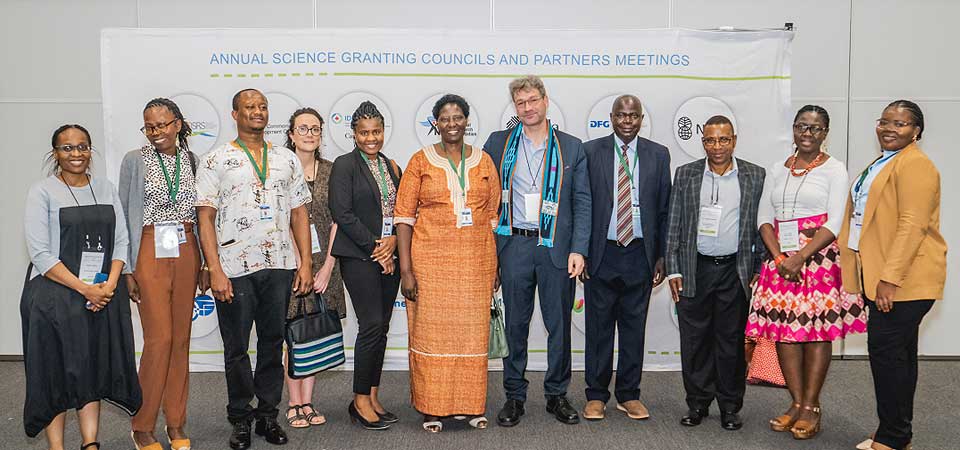
In order to support research and evidence-based policies that might help to economic and social development, the Science Granting Councils Initiative in sub-Saharan Africa was established in April 2015. The initiative aims to increase the capacities of councils in 17 African nations.


